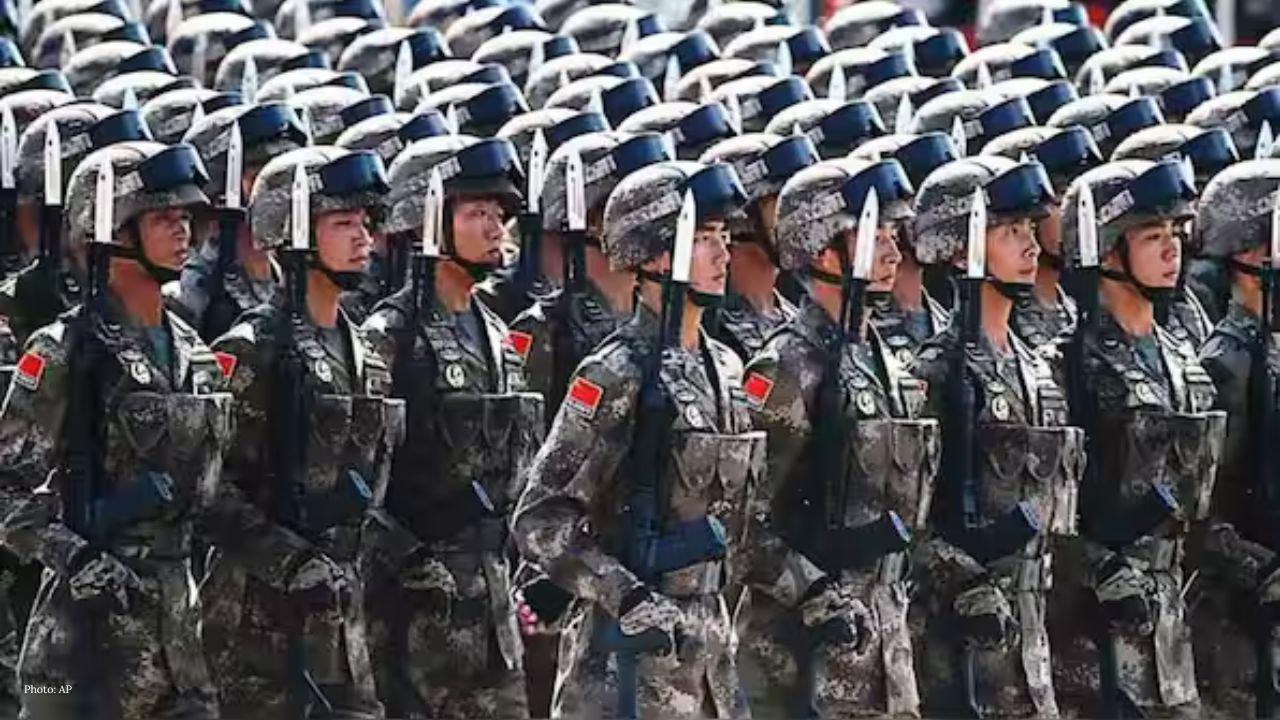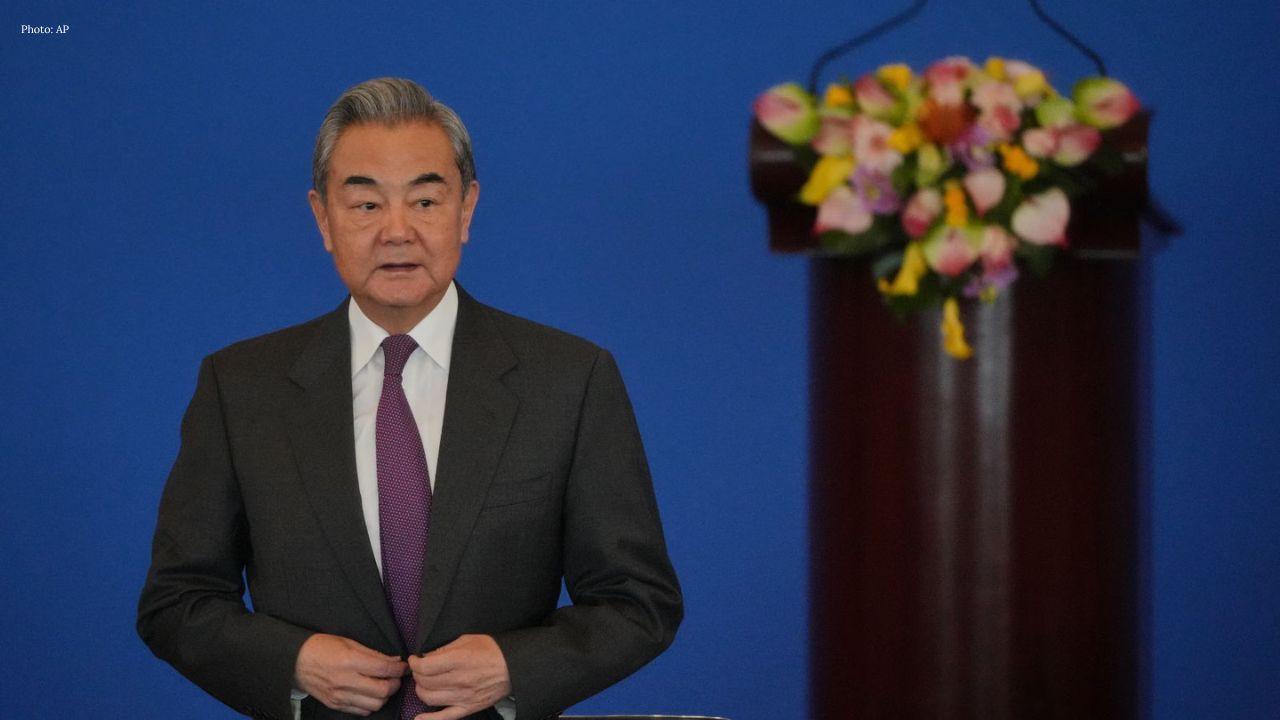You have not yet added any article to your bookmarks!

Join 10k+ people to get notified about new posts, news and tips.
Do not worry we don't spam!

Post by : Anis Farhan
The global tech landscape is undergoing a seismic shift. Traditionally dominated by Silicon Valley and Western hubs, the epicenter of tech hiring is moving eastward. In a landmark 2025 report by Colliers, three Asian nations—China, India, and Japan—hold positions in the top 10 global markets for tech hiring.
Beijing emerges as Asia’s leading tech talent hub, ranking among the world’s best. India shows strength in depth: six of its cities—led by Bengaluru and Hyderabad—top the Asia-Pacific rankings for tech talent acquisition. Japan’s Tokyo rounds out the list, cementing Asia's influence in global tech employment.
This isn’t just about numbers—it’s a reflection of structural transformation, where Asia is transitioning from manufacturing dominance to innovation leadership, powered by young talent, growing ecosystems, and deeply rooted ambition.
China’s strength isn’t just in sheer size; it also leads in venture capital growth, innovation density, and productivity. Among the region’s “power” cities, Beijing stands out for tech sector scale and activity, while Shanghai and Shenzhen reinforce China’s status.
Shenzhen, long dubbed “China’s Silicon Valley,” leads in hardware manufacturing and innovation, housing companies like Tencent, Huawei, and DJI. Meanwhile, the national “Made in China 2025” strategy solidifies business confidence in sectors ranging from AI to green energy—making tech jobs both aspirational and systemic.
For hiring managers, this means talent is deep, technically proficient, and often specialized—a powerful combination in today’s AI-driven economy.
India’s representation across six leading tech cities signifies something more than hiring volume—it highlights diversification and depth. Bengaluru and Hyderabad serve as talent magnets, each with robust ecosystems in AI, software, and enterprise services. Chennai, Pune, Delhi-NCR, and Mumbai follow closely, strengthening the geographic breadth of India’s tech workforce.
Office leasing activity mirrors this demand. In the first half of 2025, tech firms leased over 10 million square feet of Grade A space across top Indian cities—about 40% of all conventional leasing in those markets. Flexible workspaces also saw soaring demand, with tech firms making up nearly half of that segment.
This structural support—combined with cost efficiency, institutional support, and GCC (Global Capability Centre) growth—has elevated India as not just a talent supplier, but as a strategic innovation hub.
Japan’s Tokyo ranks among the top APAC markets for sector composition and venture capital. Alongside Seoul and Australia’s strong entries (Sydney and Melbourne), it underscores the diversity of talent and innovation across Asia. These cities benefit from stable governance, advanced R&D, and regulatory maturity—approachable and powerful contrast to faster-growing but riskier markets.
Regions such as Southeast Asia and Australia also provide niche tech talent pools, but the bulk of momentum in 2025 remains focused on China, India, and Japan.
Five transformational trends explain Asia’s tech hiring leadership:
Deepening Talent Pools: Youthful demographics feed the sector—workers under 25 have surged, especially in tech-rich cities like Bengaluru and Hyderabad.
GCC Evolution: India’s Global Capability Centres have transitioned from support hubs to innovation engines—capturing high-value assignments from global firms.
Cost-Adjusted Productivity: Talent may cost less than equivalent Western counterparts, but delivers high capabilities—especially in software and AI.
Academic Input: Strong collaboration between universities and industry ensures a steady pipeline of skilled workers.
Innovation Ecosystems: From Shenzhen’s hardware mastery to Bengaluru’s software dominance, Asia’s tech ecosystems are mature, diverse, and self-sustaining.
Global job postings requiring AI expertise have skyrocketed. Roles in data science, cybersecurity, and cloud engineering remain in high demand. Traditional IT roles are seeing flat or declining interest. This shift fuels competition for top talent and positions cities with young, specialized talent deep pools in advantageous spots.
India’s GCCs and automation capabilities feed this demand. China's production-efficiency posture feeds its hiring engine. Japan’s tech firms benefit from stability and precision-oriented innovation. Together, these factors explain why hiring scales are not merely recovering—but growing.
One notable trend is Asia’s younger tech workforce. Between 2014–2022, the share of workers under 25 in tech rose by around 9%, outpacing all-industry averages by a large margin. This youth-led momentum adds flexibility, digital fluency, and innovation—all critical to staying competitive in a rapidly evolving landscape.
Diversity in backgrounds—ranging from engineering to design, data science to cybersecurity—also helps companies build cross-functional teams across frontier use cases like generative AI, fintech, and smart manufacturing.
In India, tech firms dominate both conventional and flexible office space leasing. Occupiers drove nearly half the conventional office leasing demand in major cities, while tech firms made up nearly half of flex space demand. The GCCs, accounting for 41% of all tech leasing in H1 2025, underscore how enterprise expansion directly influences infrastructure.
This symbiotic relation between hiring and real estate reflects a broader trend: talent growth is not abstract—it shapes cities, economies, and civic life.
Asia’s leadership in tech hiring indicates a tectonic shift in global innovation geography. Companies worldwide are recognizing that future-proof operations will increasingly rely on Asia’s ecosystems. Global tech firms are establishing research hubs, engineering centres, and GCCs across these cities.
While Western markets will continue to innovate, Asia’s combination of diversity, scale, adaptability, and cost makes it indispensable.
More GCC Innovation: Expect centers in India to shift further toward R&D, product development, and AI labs.
Talent Policy Tweaks: Governments may focus more on retention, upskilling, and academic collaborations.
Infrastructure Pushes: Cities might reinforce digital and physical infrastructure to accommodate demand.
Global Competition: While Asia dominates today, rival regions are watching closely—creating a high-stakes talent race.
This article is based on the Colliers Global Tech Markets 2025 report and additional news insights. It provides editorial analysis only and is not intended as investment or policy guidance.










China to Raise Defence Budget by 7% in 2026 Amid Global Tensions
Beijing proposes a 1.91 trillion yuan defence budget for 2026, marking 11th straight year of single-

China Ousts Three Retired Generals from Top Political Advisory Body
CPPCC ousts retired PLA generals ahead of annual Two Sessions as broader anti‑corruption military sh

Japan Jobless Rate Rises to 2.7%
Japan sees first increase in jobless rate in five months as voluntary quits rise and job openings sl

Strong 6.1-Magnitude Earthquake Shakes Indonesia’s Sumatra Island
Tremors felt across region no immediate reports of damage or casualties as authorities monitor seism

Rizwan Sajan Reaffirms Trust in UAE’s Safety and Growth
Danube Group Chairman Rizwan Sajan assures residents and expatriates of safety in UAE, highlighting

India Witnesses Chandra Grahan Blood Moon Visible in Parts of World
Skywatchers observe partial eclipse in India as total ‘Blood Moon’ visible across North America Aust